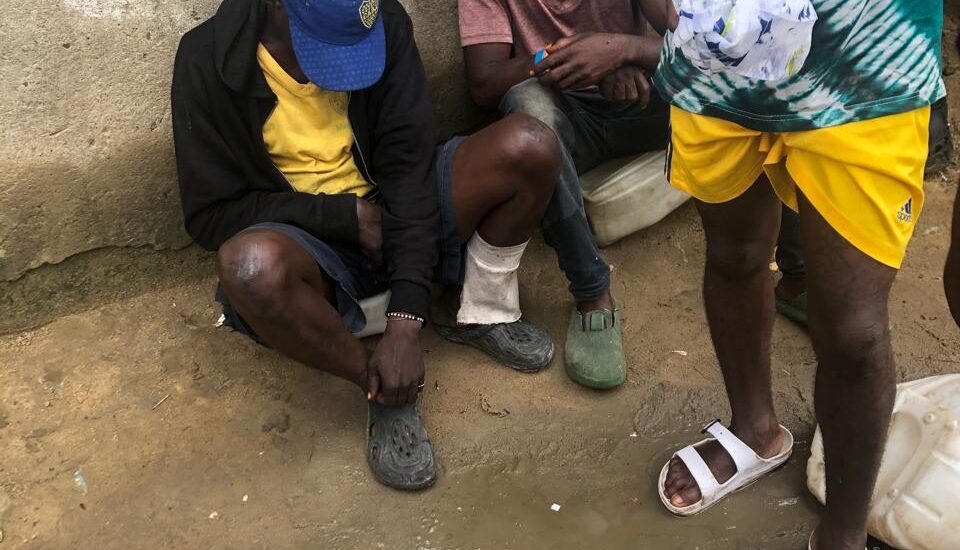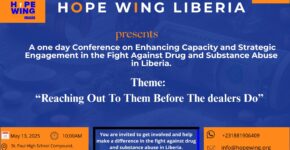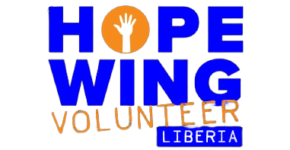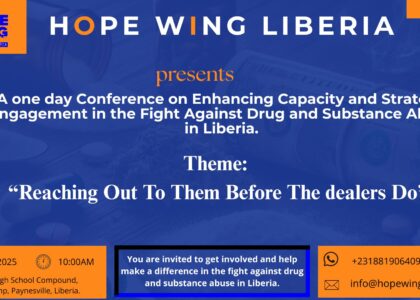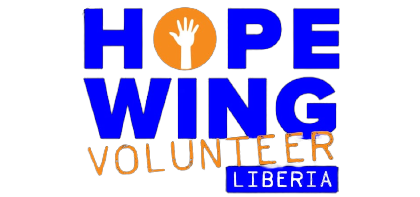Drug abuse among the youth is a growing concern in Liberia, with far-reaching consequences that affect individuals, families, and communities. As the country continues to rebuild and develop, addressing this issue is crucial for the well-being and future prospects of its young population. This blog post explores the various effects of drug abuse among Liberian youth and the urgent need for comprehensive intervention strategies.
Health Consequences
The most immediate and visible impact of drug abuse is on health. Young people who abuse drugs are at a higher risk of developing a range of physical and mental health issues. These can include:
- Physical Health Problems: Drug abuse can lead to chronic health conditions such as respiratory issues, cardiovascular diseases, liver damage, and weakened immune systems. Additionally, sharing needles among drug users increases the risk of infectious diseases like HIV/AIDS and hepatitis.
- Mental Health Disorders: Substance abuse often exacerbates or triggers mental health conditions, including depression, anxiety, and psychosis. The brain development of young individuals can be particularly affected, leading to long-term cognitive and emotional difficulties.
Academic and Employment Challenges
Drug abuse severely hampers the educational and employment prospects of young people. The following issues are common:
- Academic Performance: Students who engage in drug use often struggle with attendance, concentration, and academic performance. This can result in high dropout rates and limited opportunities for higher education.
- Employment Prospects: The lack of education and skills makes it challenging for these individuals to secure stable and meaningful employment. This perpetuates a cycle of poverty and economic dependence, further entrenching social inequalities.
Social and Familial Strain
The effects of drug abuse extend beyond the individual, causing significant strain on families and communities:
- Family Relationships: Drug abuse can lead to conflicts, breakdown of relationships, and neglect of familial responsibilities. Families often face financial strain due to the cost of treatment and loss of productivity.
- Community Safety: Increased drug abuse is often associated with higher crime rates, including theft, violence, and other criminal activities. This undermines community safety and erodes social cohesion.
Economic Burden
The economic impact of drug abuse is substantial, with costs incurred in several areas:
- Healthcare Costs: The treatment of drug-related health issues places a significant burden on the healthcare system. Resources that could be used for other public health initiatives are often diverted to address the consequences of substance abuse.
- Loss of Productivity: The workforce is weakened by the absence of healthy, educated, and capable young individuals. This affects national productivity and hampers economic growth.
Stigma and Marginalization
Youth who abuse drugs often face stigma and marginalization, which can further entrench their challenges:
- Social Stigma: Society’s negative perceptions of drug users can lead to isolation and discrimination, making it difficult for affected individuals to seek help and reintegrate into the community.
- Marginalization: Stigmatized individuals are often marginalized, reducing their access to social services, education, and employment opportunities.
Solutions and Interventions
Addressing drug abuse among the youth in Liberia requires a multi-faceted approach:
- Education and Prevention: Implementing comprehensive drug education programs in schools and communities can raise awareness about the dangers of drug use and promote healthy lifestyles.
- Access to Treatment: Expanding access to rehabilitation and counseling services is crucial for helping young people recover from addiction. This includes both medical and psychological support.
- Supportive Policies: Enacting policies that reduce the availability of drugs and provide support for affected families can create an environment conducive to recovery and prevention.
- Community Engagement: Involving community leaders, parents, and youth in awareness and prevention programs can foster a supportive network that encourages positive behavior and deters drug use.
- Economic Opportunities: Providing vocational training and employment opportunities can help at-risk youth find productive paths that reduce their vulnerability to drug abuse.
Conclusion
The impact of drug abuse among the youth in Liberia is profound and multifaceted, affecting health, education, family dynamics, community safety, and the economy. Addressing this issue requires a concerted effort from all sectors of society, including government, non-profits, communities, and families. By implementing comprehensive prevention and intervention strategies, we can help Liberian youth overcome the challenges of drug abuse and build a healthier, more prosperous future for themselves and their country.
Hope Wing Liberia is committed to combating drug abuse through awareness campaigns, education programs, and support services. Together, we can make a significant difference in the lives of young Liberians, empowering them to lead drug-free and fulfilling lives.


